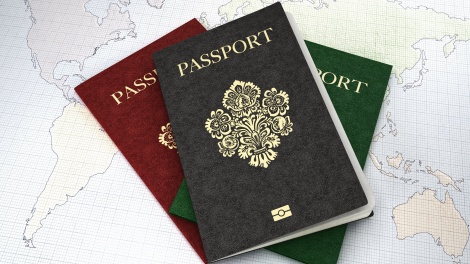 The 2023 index of the world’s most powerful passports has been released.
The 2023 index of the world’s most powerful passports has been released.The annual ranking of the world’s most powerful passports has been released for 2023, with a familiar nation retaining its place at the top of the tree for the fifth year running.
Despite only reopening its own borders in October last year to allow the rest of the world to visit it, the 2023 Henley Passport Index found the Japanese passport allows holders access to more countries around the world without first obtaining a formal visa.
The ranking was compiled utilising IATA data and found Japanese passport holders can visit 193 of the world’s 227 sovereign nation either visa-free or by simply obtaining one on arrival.
Henley & Partners Chairman and founder of the annual passport index, Dr Christian Kaelin, says the annual list continues to be an important resource for travellers.
“However, for global citizens and international businesspeople, a better measure of economic mobility and opportunity afforded by their passports is an indication of what share of the world’s GDP is accessible to them visa-free,” Kaelin said.
Asian nations complete the podium, with South Korea and Singapore following closely behind Japan with their respective passports permitting visa-free access to 192 countries. Germany and Spain round out the top five.
Australia performed strongly once again in the global ranking, sharing eighth place alongside Canada, Greece and Malta with visa-free access to 185 countries.
At the other end of the scale, Afghanistan remains firmly anchored to the bottom of the pile, with its citizens only able to visit 27 countries visa-free if travelling on its passport.
 The Australian passport came in eighth place in the 2023 Henley Index
The Australian passport came in eighth place in the 2023 Henley IndexThe annual Henley report is also used by investors and business leaders to identify economic opportunities based on the ease of a company operating in a particular country.
On this metric, the Japanese passport again ranks best, with the 193 countries its citizens can access accounting for 85% of the world and 98% of global GDP.
In contrast, the Nigerian passport is one of the least effective, with the 46 nations open to its citizens visa-free only making up 1.5% of the world’s economic output.
One of the biggest movers over the past decade has been the United Arab Emirates, now sitting in 15th place, with passport holders having access to 178 countries visa-free – up from 64th spot and 72 countries a decade ago.
Interestingly, the ongoing war in Ukraine is having vastly different impacts on its citizens compared to those in Russia.
The Ukrainian passport may find itself climbing the Henley list if the country eventually joins the European Union. Negotiations for membership are due to begin soon and the potential seems strong with the EU rubber-stamping Ukraine’s candidacy status application last year.
Russians however are heading in the opposite direction, with airspace closures and economic sanctions effectively barring them from travelling to most of the developed world, with notable exceptions being Dubai and Türkiye.



